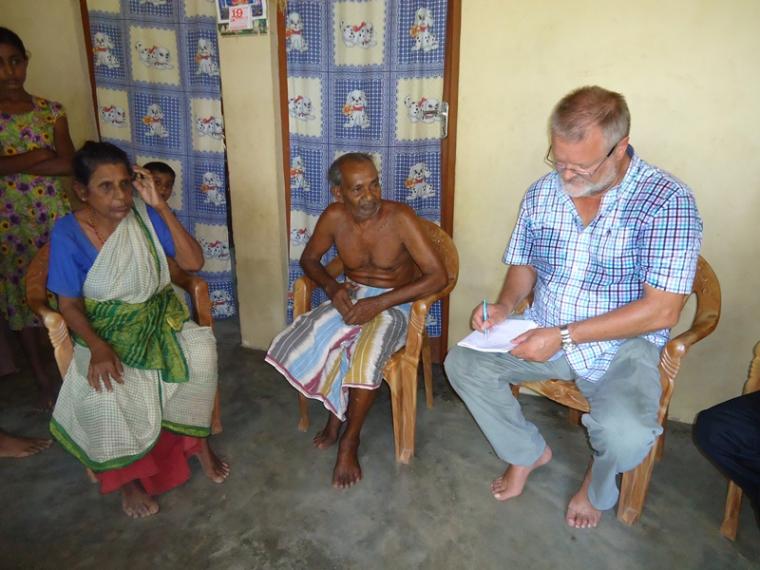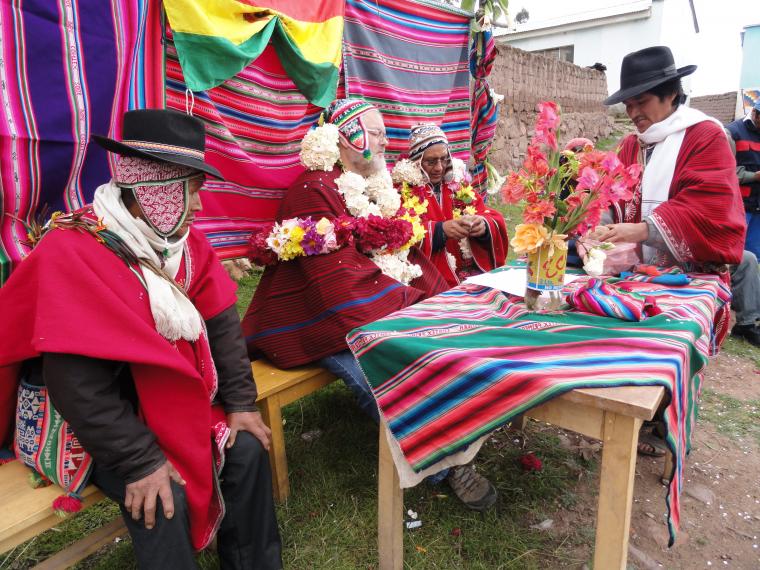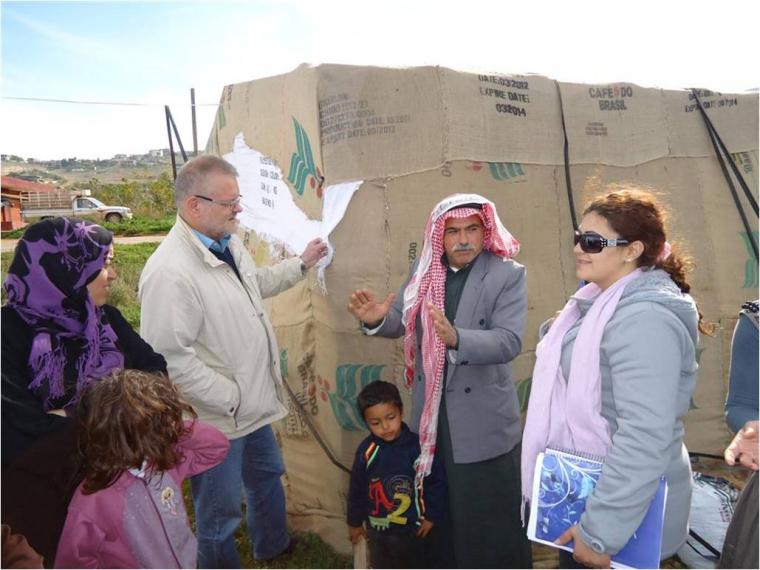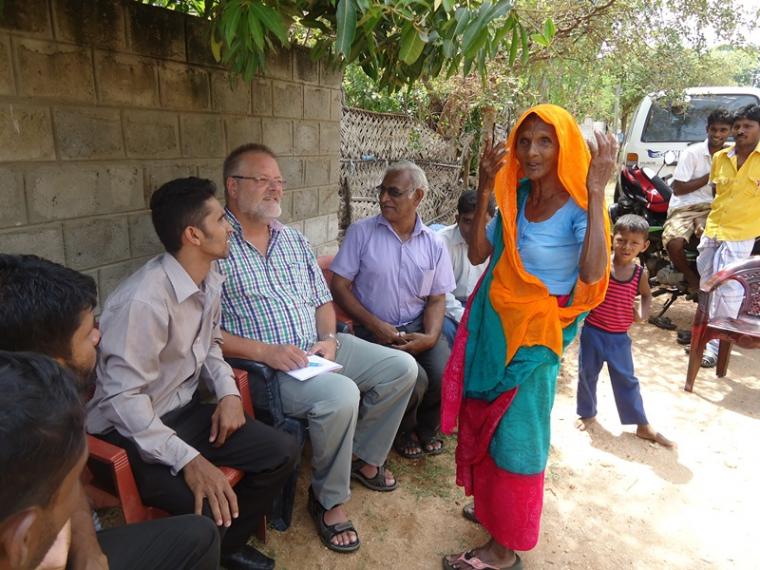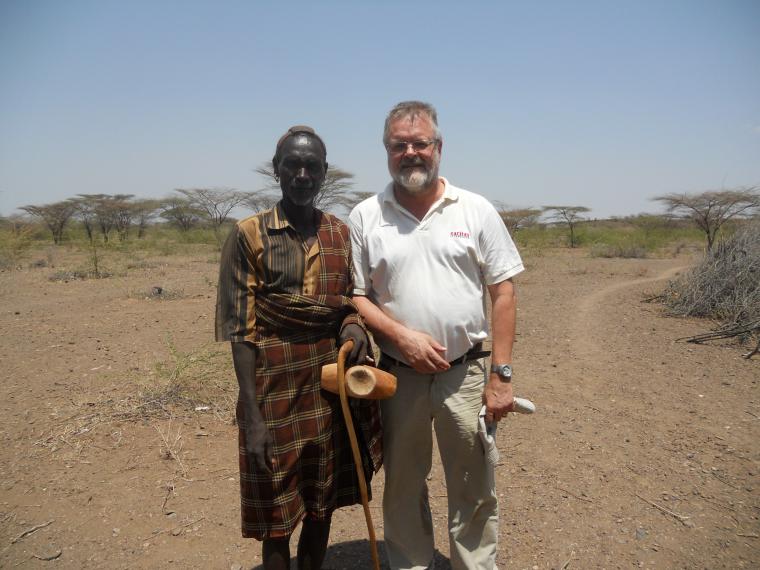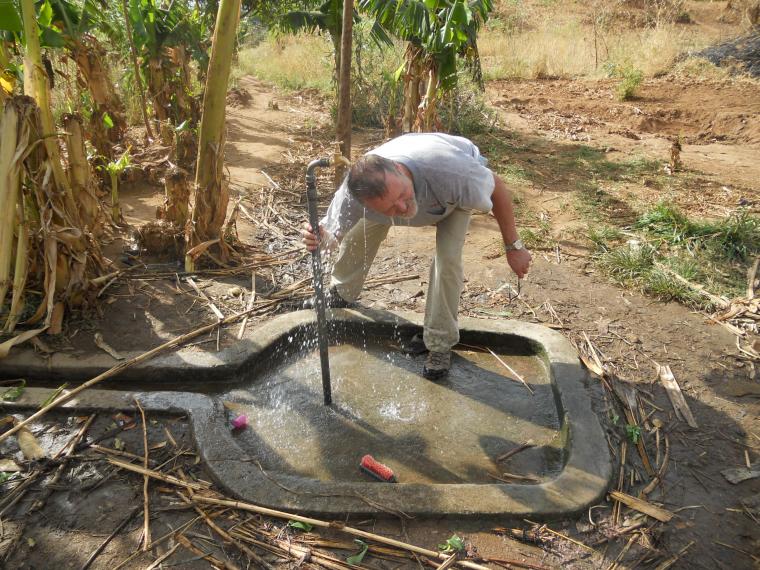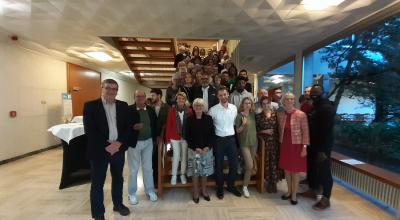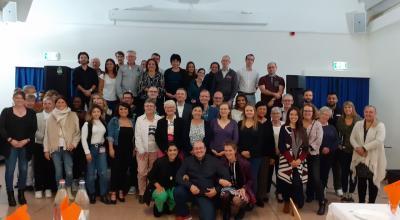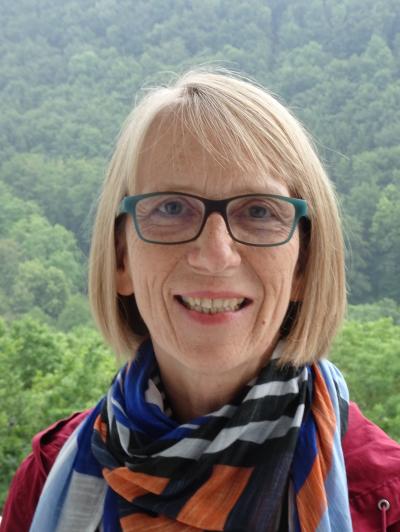
François Jacobs - pioneer of international cooperation
Wednesday 27 June 2018
A very straight road. Then a very sudden change of direction. Considered. Deliberated upon. As a social worker, Fränz Jacobs stepped forward to create a department that goes far beyond the borders of the Grand Duchy and gives Caritas Luxembourg a scale that extends almost to the entire planet.
To each their own path in life. For Fränz Jacobs, who was born in September 1954 in Ettelbrück, that path seems clear. After attending high school in Clairefontaine for 3 years (where, anecdotally, he was to rub shoulders with Jean-Claude Juncker, unaware, as they both were, that the latter would become the country's Prime Minister and then President of the European Commission) and then in Diekirch, he passed his economics Baccalaureate. He then studied for three years at an institute in Liège. Afterwards he did a 4th year internship at Jongenheem to obtain the Luxembourg diploma to qualify as a social worker. His objective was to work for a judge specialising in youth protection. Unfortunately, a well-placed competitor took the vacant position and he ended up in prison - as a probation officer.
On a romantic level, he married in August 1978. At work, he felt ill at ease working as a probation officer in a repressive prison environment, and the way he saw his job did not tally with his career expectations. But he was in luck. In July 1980, an old acquaintance called him up and told him that Caritas Luxembourg was looking for a social worker. He put himself forward and hey presto, he was in the job. His first task was to open a local branch in the north, in Diekirch, to serve the needs of disadvantaged young people. Fränz Jacobs had taken these needs fully on board when, in 1984, he went to Cork (Ireland) to take part in a seminar that led to the foundation of a European federation of national associations for the homeless. So energised was he on his return that one year later, the first Ulysse shelter opened its doors in a former government building in rue du Fort Neipperg. It had forty beds on the ground floor, a dining room, 6 beds for women on the first floor, and some offices. A bit basic but better than nothing. In 1986, Fränz took charge of Caritas Luxembourg's homeless department. After the night shelter, other structures followed including a re-socialisation centre, the Teistuff in Rollingergrund, a farm near Diekirch which accommodates homeless people and provides work in a carpentry workshop and a laundry room. Early 1992 saw the first supported housing provision. During the same year, at an in-house meeting, Fränz Jacobs threw a large pebble into the pond. Given that the Grand Duchy was a very rich country, why should it not participate in international cooperation? His comment was not met with indifference, and he was told straight away that if his shoulders were broad enough to take on such an onerous task, there would be no problem. Fränz Jacobs asked for some thinking time - while he was on holiday. On his return, the response was affirmative and can be summed up as "let's go, I'll take care of it". Tsunamis, earthquakes, civil wars, development aid on all continents: Caritas Luxembourg has a presence in Africa, Latin America, the Middle East, Africa and Asia.
On almost every front
When he first got involved in international cooperation, Fränz Jacobs learned that the hospital in the town of his birth was replacing its beds with new ones. At the same time, he learned from a Polish connection that an establishment in this former eastern block country needed beds. He arranged the transport and the Ettelbrück beds acquired new occupants. In terms of transport, he was to surpass himself again. During the war in the Balkans, which saw the former Yugoslavia break up into several entities, Fränz Jacobs organised truck convoys to Croatia, Bosnia and Herzegovina, and Serbia. The lorries were loaded with seed potatoes, barley, wheat and so on. In short, enough to get agriculture back on its feet in countries ravaged by war.
Was Fränz Jacobs to become a globe-trotter? After meeting Michel Roy in Beirut, then head of the Catholic Relief Service for the Middle East (he is today Secretary General of Caritas International), and having developed his network of contacts and maintaining excellent relations with the Luxembourg Ministry of Foreign Affairs, he worked with his first team member in the department, Dr Michael Feit, aided by two doctors from the Würzburg Institute, to lead the fight against multi-resistant tuberculosis in Moldovan prisons. He returned to the field a little later in Beirut at the end of the civil war in the Lebanon, and helped develop low-cost, cyclone-protected houses for Bangladesh. This kind of house was four metres by four metres, resting on a slab with a concrete pillar at each corner. The roof consisted of sheet metal plates. Its walls were made of woven, removable bamboo. In the event of extreme weather events and flooding, the house was easily dismantled while its structure would never move.
It just goes to show that you also need lots of imagination for cooperation!
On 30 June 2015, after 35 years of more than good and loyal service, Fränz Jacobs took retirement. At his farewell drinks, he announced that firstly, he was going to take three months off but secondly, that he would then return as a volunteer, provided it was within a well-defined framework. In conclusion, he continues to come to work every Wednesday and monitor the progress of various development projects with a number of partners in Columbia. Proving that he is up-to-date with the present day, our man has even used Skype to plan a conference. No problem, Fränz Jacobs speaks fluent Spanish having learned it on an intensive course during his lunch breaks at the language centre.
Linked news
Donate
Your donation is essential to ensure the continuity of Caritas Luxembourg's actions in the service of the poor.
Other donation methods
